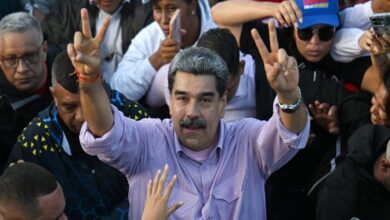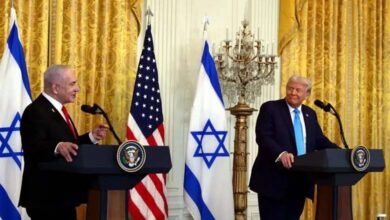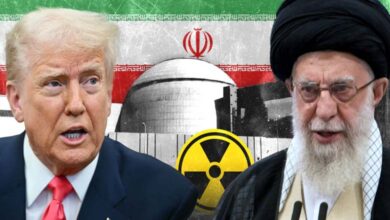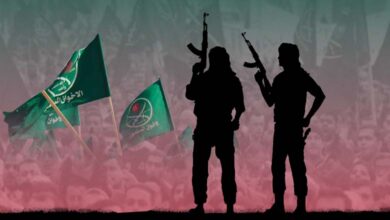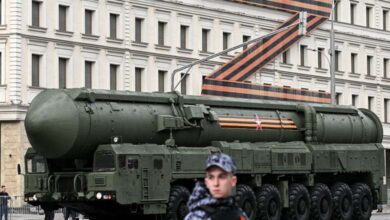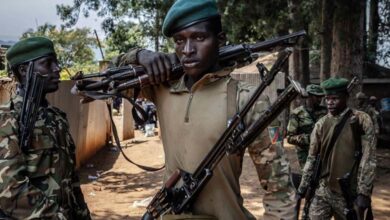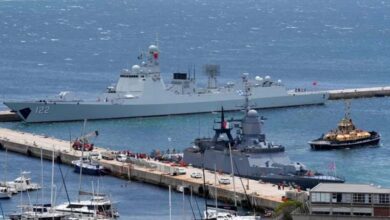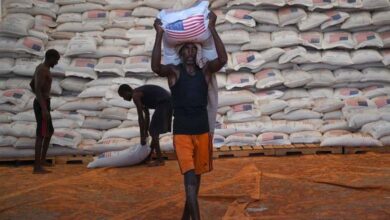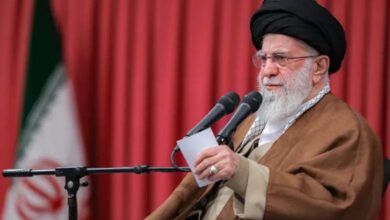Washington bets on drying up Hezbollah’s funding sources to force it to lay down its arms
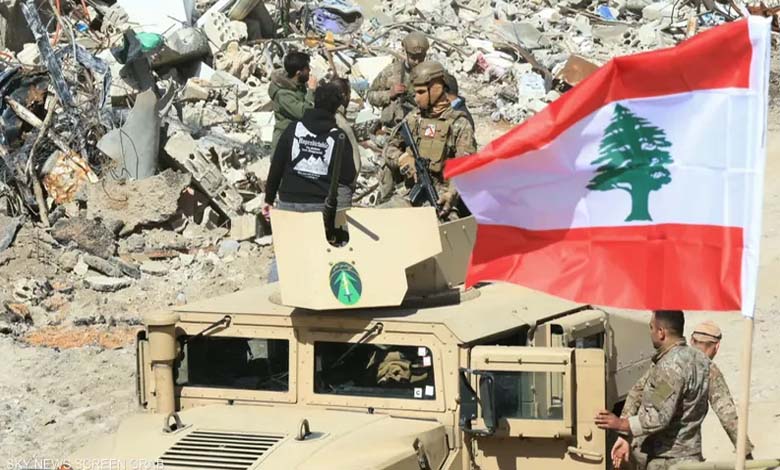
The U.S. Treasury’s top sanctions official has stated that despite its struggling economy, Iran continues to channel large sums of money to its “terrorist proxies.”
John Hurley, the U.S. Undersecretary of the Treasury for Terrorism and Financial Intelligence, said in an interview late Friday that Washington is seeking to seize a “unique opportunity” in Lebanon to cut Iranian funding to Hezbollah and pressure the group to disarm.
-
Israel announces the killing of a Hezbollah commander: the logistics support chief
-
Israeli Airstrikes on Lebanon’s Bekaa and North: Hezbollah Infrastructure and Missile Sites Targeted
Hurley revealed that Iran managed to transfer nearly one billion dollars to Hezbollah this year, despite a series of Western sanctions that have severely crippled its economy.
The United States has maintained a “maximum pressure” policy toward Tehran, aimed at curbing uranium enrichment and limiting Iran’s regional influence — including in Lebanon, where the strength of the Iran-backed Hezbollah has waned after Israel dealt a heavy blow to its military capabilities during the 2023–2024 war.
Last week, Washington imposed sanctions on two individuals accused of facilitating Hezbollah’s financing through international money transfers. Several Western governments and Gulf states classify Hezbollah as a terrorist organization.
-
Washington warns of potential Israeli unilateral action if Hezbollah is not disarmed
-
A warning to Hezbollah: Israel’s largest drill on the Lebanese border since October 7
“There is an opportunity in Lebanon right now,” Hurley said. “If we can get Hezbollah to lay down its weapons, the Lebanese people can take back their country.”
Speaking from Istanbul — one of several stops on his regional tour that includes Turkey, Lebanon, the UAE, and Israel — Hurley emphasized that the key to this
strategy is “removing Iranian influence and control, which begin with the money flowing into Hezbollah’s hands.”
Since the collapse of talks in September aimed at limiting Iran’s nuclear and ballistic missile programs, Tehran has sought to strengthen its ties with China, Russia, and regional partners such as the United Arab Emirates.
-
After the Gaza Agreement… Receding Justifications and Rising Pressure to Disarm Hezbollah
-
Israeli army announces elimination of two Hezbollah commanders
Western powers accuse Iran of secretly developing nuclear weapons capabilities, while Tehran insists its program is purely civilian. Its economy, however, faces soaring inflation and deep recession.
Israel, a close U.S. ally, claims Hezbollah is working to rebuild its arsenal. On Thursday, Israeli forces carried out massive airstrikes in southern Lebanon, despite a ceasefire agreement reached a year earlier.
The Lebanese government has pledged to disarm all non-state armed groups, including Hezbollah, which was founded in 1982 by Iran’s Revolutionary Guard Corps. The group, a leading force within the Iranian-backed “Axis of Resistance,” opened fire on Israel in 2023 in solidarity with Palestinians during the Gaza war.
-
Disputes shake Hezbollah’s media apparatus and turn into a power struggle
-
Millions for Information on a Hezbollah Financier: Who is Ali Qasir, Wanted by Washington?
While Hezbollah has not obstructed Lebanese forces from regaining control of some of its weapon caches in the south, it refuses to surrender its arms completely.
During his first Middle East tour since his appointment under the Trump administration, Hurley reiterated in meetings with officials, bankers, and business leaders that “even with Iran’s economic collapse, it continues to pour vast amounts of money into its terrorist proxies.”
On Saturday, the Israeli military announced that it had killed a Hezbollah member — the third in a single day — during an airstrike on the southern Lebanese town of Baraachit. The army claimed the fighter had been attempting to rebuild Hezbollah military infrastructure in the area, in violation of Israel-Lebanon understandings.
-
Hezbollah Cell in Syria: Details of the Terrorist Plot and Heavy Weapons Seizure
-
Hezbollah member injured in Israeli strike on Lebanon
Earlier the same day, the Israeli army said it killed two other Hezbollah fighters in the town of Shebaa, accusing them of smuggling weapons.
According to Israel’s public broadcaster, security sources said Tel Aviv had warned Washington and the Lebanese army that Hezbollah is “rebuilding its military capabilities” and had successfully smuggled hundreds of rockets from Syria in recent weeks.
Israeli forces have conducted more than 25 airstrikes in southern Lebanon, including one on a strategic site known as “Kashmir,” allegedly used by Hezbollah for rocket production. Since the ceasefire took effect in November 2024, Israel claims to have killed about 340 Hezbollah fighters.
These developments come amid escalating tensions along the southern Lebanese border, where daily Israeli airstrikes and mass civilian evacuation orders mark the most severe flare-up since the truce came into effect.


